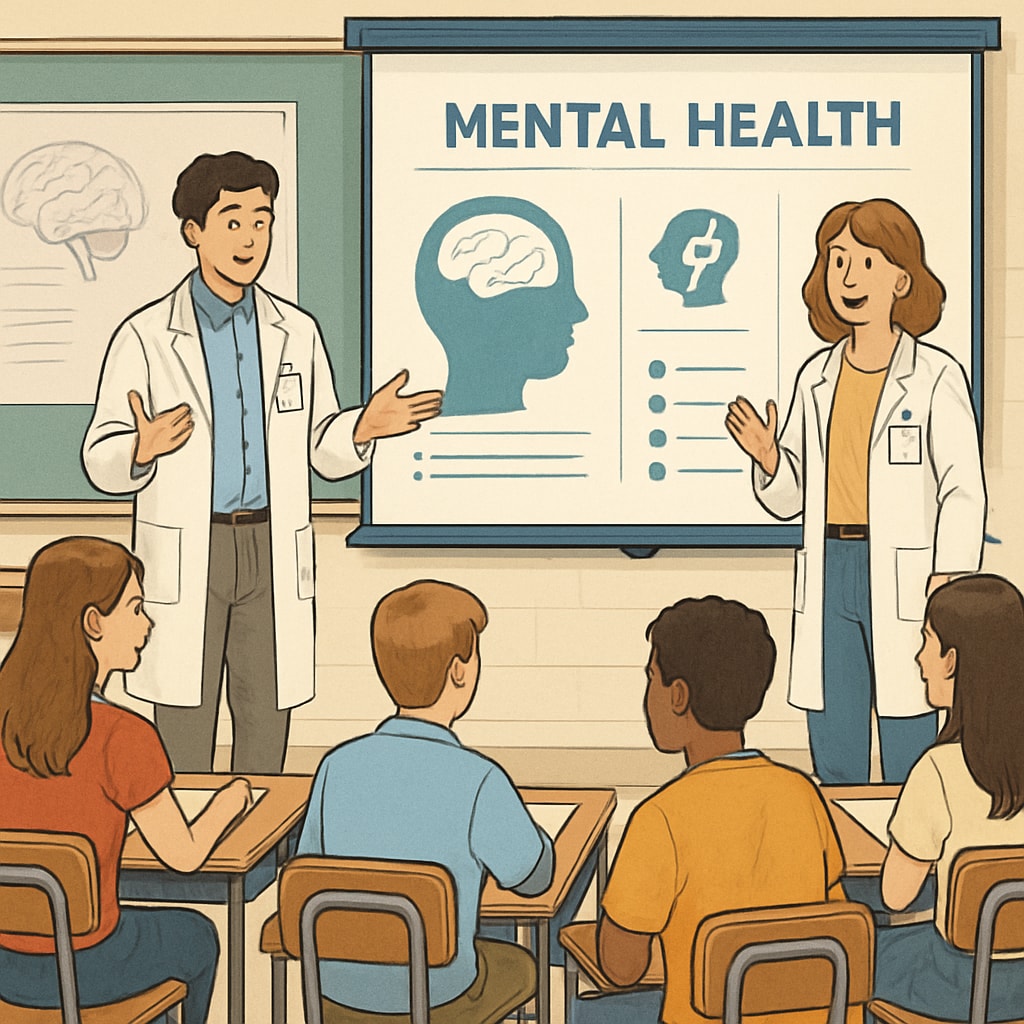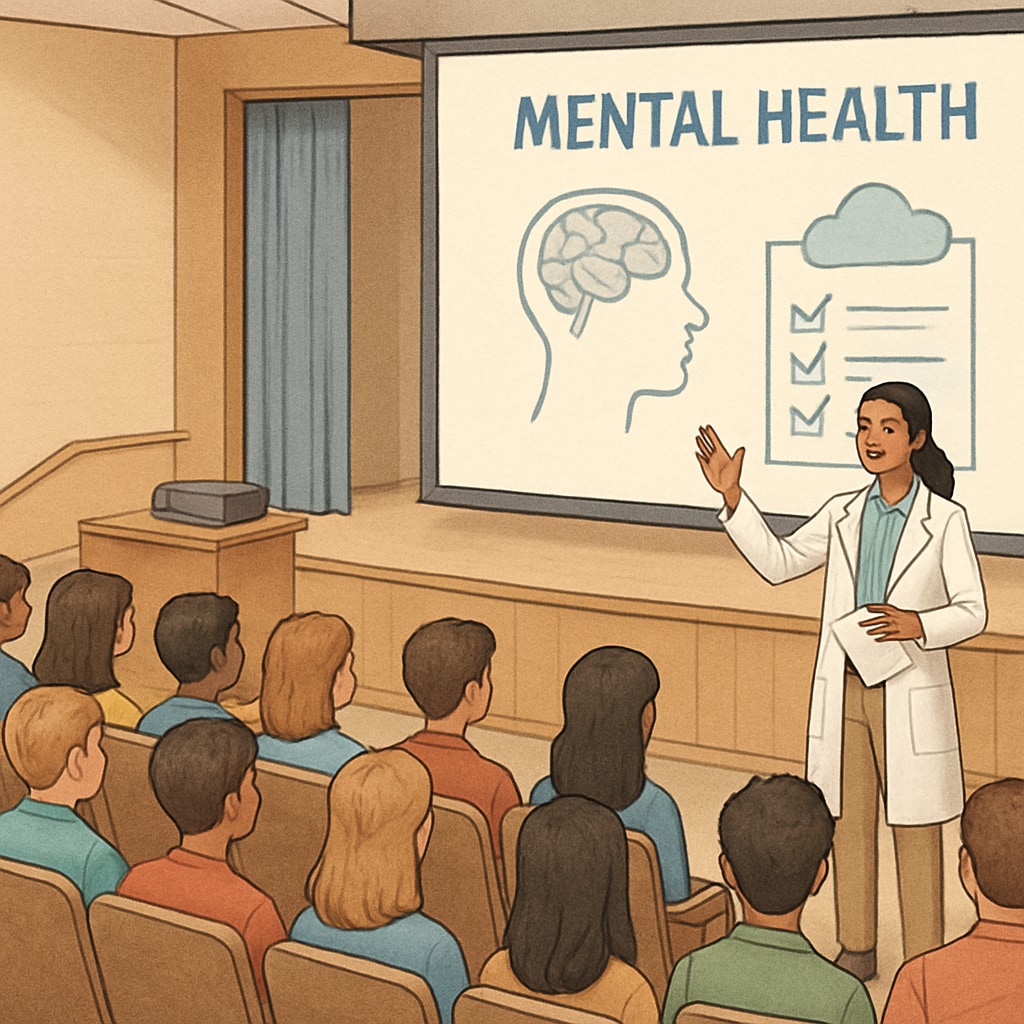Mental health challenges among adolescents have become increasingly prominent, necessitating proactive measures to address emotional well-being in schools. One innovative approach involves medical students organizing mental health talks for high school students. These events serve as a bridge between clinical expertise and educational needs, empowering young minds with knowledge and coping strategies. This article explores the importance of such initiatives, practical ways to implement them, and key factors for success to ensure these gatherings make a meaningful impact.
The Educational Value of Mental Health Talks
Hosting mental health talks for high school students offers numerous benefits. First, it provides adolescents with access to credible, science-backed information about mental health conditions, which helps dispel myths and reduce stigma. For example, anxiety disorders, depression, and stress management are common topics that resonate deeply with young audiences. Moreover, medical students can introduce early intervention strategies, fostering resilience and teaching students how to seek help when needed. This aligns with broader efforts to normalize mental health discussions within educational settings.

In addition, these talks can enhance the communication skills of medical students themselves. By tailoring complex medical concepts into digestible content for teenagers, medical students refine their ability to explain psychological topics in relatable terms. As a result, these events become mutually beneficial, enhancing both the knowledge of high school students and the outreach abilities of future healthcare providers.
Steps to Organize a Successful Mental Health Talk
Planning an effective mental health event requires careful preparation. Below are the essential steps:
- Identify the audience: Conduct research or consultations with school administrators to understand the specific needs and concerns of high school students. This ensures the content is relevant and impactful.
- Develop engaging content: Create presentations that are interactive and age-appropriate. Incorporate multimedia elements like videos, infographics, and real-life anecdotes to maintain interest.
- Collaborate with schools: Partner with educators and counselors to integrate mental health talks into existing curricula or extracurricular programs. Their insights can guide the tone and focus of the event.
- Invite mental health professionals: While medical students can lead the talks, inviting licensed psychologists or psychiatrists to co-host the event adds credibility and provides deeper expertise.
- Include Q&A sessions: Encourage open dialogue by allowing students to ask questions. Anonymized question options, like written notes, can help shy participants engage.

Key Success Factors for Mental Health Talks
To ensure the effectiveness of these gatherings, several critical elements must be considered:
- Empathy and relatability: Medical students should approach discussions with empathy and avoid using overly clinical jargon. Sharing personal experiences or insights can make talks more relatable.
- Interactive formats: Incorporate activities such as role-playing scenarios or mindfulness exercises to keep students engaged and encourage active participation.
- Follow-up resources: Provide students with access to mental health resources, including local counseling centers, helplines, or educational websites. For example, organizations like NAMI (National Alliance on Mental Illness) and MentalHealth.gov offer valuable tools for youth.
- Feedback mechanisms: Collect feedback from students and educators to understand the event’s impact and identify areas for improvement in future talks.
Ultimately, successful mental health talks depend on fostering a safe, open environment where students feel comfortable discussing sensitive topics. Building trust between presenters and participants is key to achieving this goal.
The Broader Impact of Mental Health Initiatives
These mental health talks can lead to ripple effects within schools and communities. Students who attend these events may feel empowered to support their peers or advocate for improved mental health resources within their schools. Furthermore, medical students gain valuable experience in public health education, preparing them for future roles as compassionate healthcare providers.
In conclusion, organizing mental health talks for high school students is a meaningful way for medical students to contribute to societal well-being. By addressing the growing mental health concerns among adolescents, these initiatives not only educate but also inspire positive change. With thoughtful planning, empathy, and collaboration, medical students can make a lasting impact on the lives of young individuals, fostering a future generation that values mental wellness.


